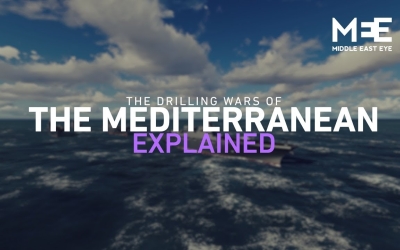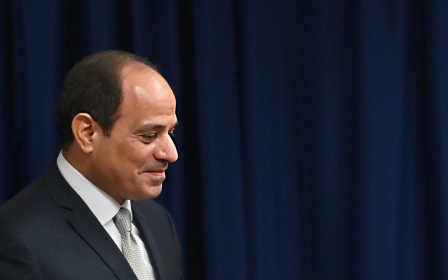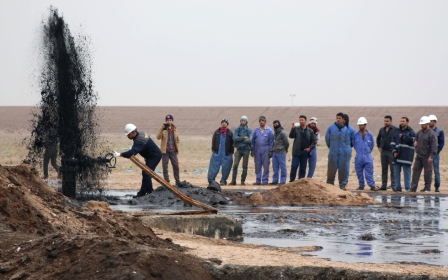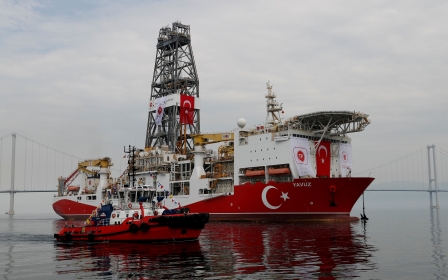Egypt's hopes of gas bonanza could sink in Eastern Med energy showdown
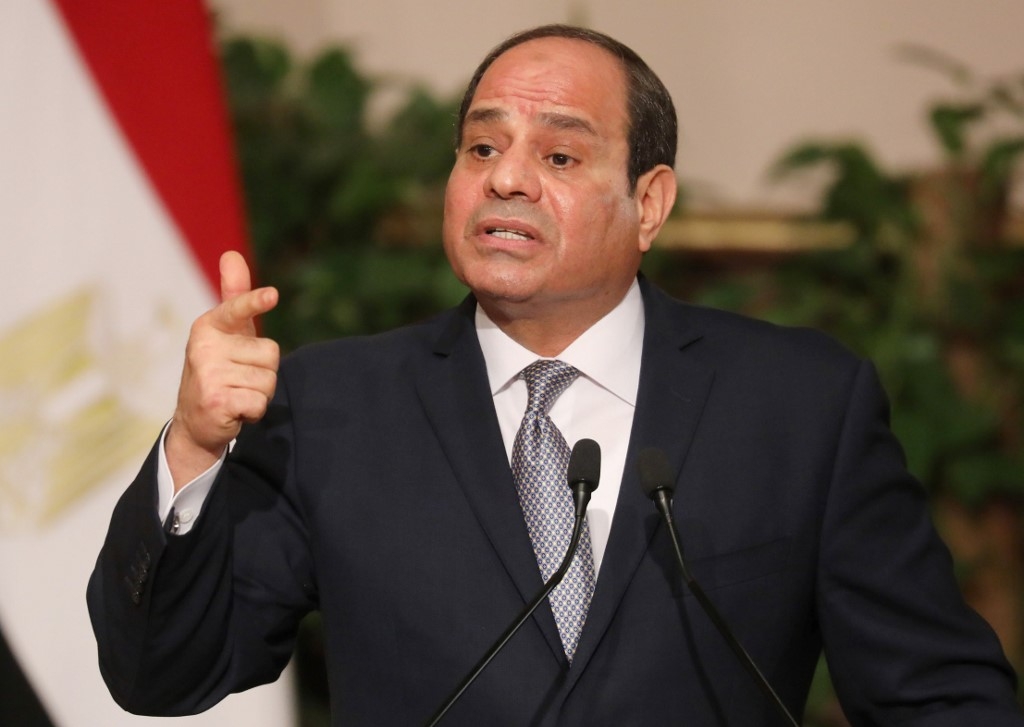
The maritime border demarcation agreement signed last month between Greece and Egypt underscores how gas markets in Egypt are heavily dependent on the stability of the region’s geopolitics.
The deal has added a new dimension to Egypt’s energy conundrum, heightening military tensions and the possibility of geopolitical deadlock in the Eastern Mediterranean.
Egypt must widen its foreign policy options and establish resistance tools, in order to limit potential repercussions from regional and internal instability
Since President Abdel Fattah al-Sisi took power in a 2013 coup, Egypt’s importance as a regional power has been waning. Its foreign policy track appears to be influenced by Israel, Cyprus and the Gulf - all of which display expansionary geopolitical ambitions in the region.
Egypt must widen its foreign policy options and establish resistance tools, in order to limit potential repercussions from regional and internal instability.
In contrast to Greece, Egypt has much to lose from the intensified geopolitical conflict, as its energy production heavily relies on natural gas extracted from the Mediterranean and the Nile Delta. Accelerated by population growth, the expansion of energy-intensive industries and a generous subsidy system, energy consumption has grown around seven percent per annum since the early 2000s.
New MEE newsletter: Jerusalem Dispatch
Sign up to get the latest insights and analysis on Israel-Palestine, alongside Turkey Unpacked and other MEE newsletters
Today, almost 80 percent of Egypt’s electricity is generated by natural gas. The electricity sector is effectively the largest consumer of natural gas, accounting for 60 percent of the country’s total gas consumption.
The possibility of intense conflict in the Eastern Mediterranean could disrupt gas supplies to Egypt’s power stations. More importantly, it could cause the collapse of the already fragile Egyptian energy industry.
Since the early 2010s, Egypt has been struggling with an energy and fiscal crisis. Its economy has been hammered by social and political backlash. Within months of the military coup that ousted the country’s first democratically elected president, Mohamed Morsi, Egypt experienced a crisis so far-reaching that much of the country faced around six power cuts a day.
The Sisi regime had limited policy options to increase public investment or attract international capital to enhance the supply of natural gas. Generous subsidies and large debts to foreign operators left over from the Mubarak era exacerbated the crisis.
Budgetary pressure
Spending on energy subsidies has taken a significant share of budget expenditures in recent years, accounting for 22 percent in 2013, 20 percent in 2015 and 13 percent in 2016. While aware of the immense pressure on the budget, the regime could not immediately address the issue of mismanaged energy subsidies, as these subsidies helped to guarantee the political backing of the Egyptian masses.
The subsidies have not only weighed heavily on Egypt’s fiscal balance, but also distorted markets for energy products. Sisi’s reluctance to reform the subsidy system and the energy industry has been a distinct failure.
The disparity thus increased between Egypt’s lower and middle classes, who rely on these subsidies, and business classes who use these subsidies to lower their costs and boost profits. Last year, the World Bank reported that almost 60 percent of the population in Egypt was “either poor or vulnerable”; with the economic crisis induced by the coronavirus pandemic, poverty and inequality are expected to rise further.
Since the coup, the Sisi regime has executed a series of policies aimed at reforming energy subsidies and correcting the budget deficit, but Egypt is still in the process of completing its transition to energy self-sufficiency. With the discovery of the supergiant Zohr gas field and increased foreign direct investment to upgrade Egypt’s energy infrastructure, the country was expected to become a net exporter of natural gas by end of 2019.
Instead, Egypt signed a historic deal with Israel last year, allowing the export of Israeli gas to the country. Egypt is expected to import around $20bn worth of natural gas from Israel. In January, it started to receive the first shipments.
Coronavirus shock
While the regime sees this deal as the first step towards Egypt becoming a regional energy re-export hub, the unprecedented economic shock of the Covid-19 pandemic has cast doubt on the future of regional cooperation on energy.
The International Energy Agency recently forecast that global energy demand in 2020 would contract by six percent, with gas consumption in particular expected to fall by four percent. Such a drastic decline would substantially harm Egypt’s economic growth and socioeconomic development.
As energy needs skyrocket, Egypt will be deeply affected by a potentially prolonged geopolitical battle
As a result of low energy prices and financial instability in the Covid-19 era, major gas projects, such as the EastMed pipeline, may be scrapped. Production from Egypt’s only operational LNG plant at Idku has been halted for months, and plans to begin production at the Damietta plant have been pushed back indefinitely.
After the discovery of the Zohr gas field, Egypt’s energy industry experienced a surge in production and attracted foreign direct investment. It has now been five years since that discovery, but the country has not achieved self-sufficiency in natural gas, and imports remain a budgetary burden.
The Zohr gas field, the largest gas reserve ever found in the Mediterranean, has placed Egypt at the centre of the ongoing geopolitical rivalry in the region. With its population surpassing 100 million people and as energy needs skyrocket, Egypt will be deeply affected by a potentially prolonged geopolitical battle.
The views expressed in this article belong to the author and do not necessarily reflect the editorial policy of Middle East Eye.
Middle East Eye delivers independent and unrivalled coverage and analysis of the Middle East, North Africa and beyond. To learn more about republishing this content and the associated fees, please fill out this form. More about MEE can be found here.



